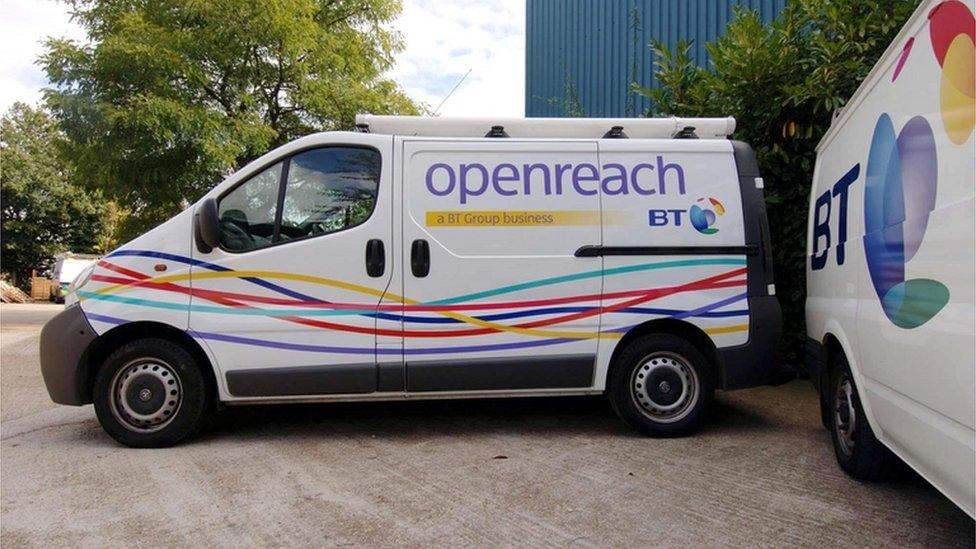BT Openreach deal aims to shake up UK broadband
- Published
- comments
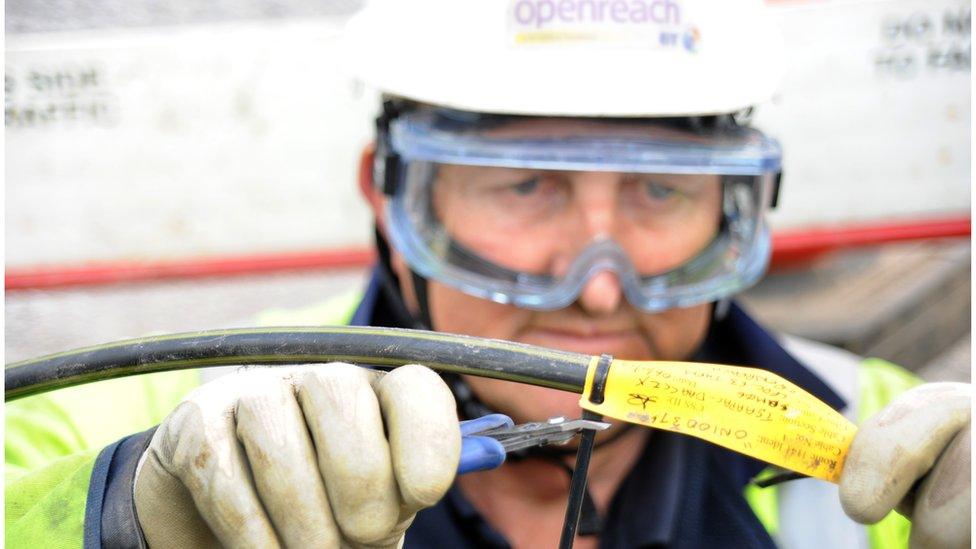
BT has bowed to demands by the telecoms regulator Ofcom to legally separate Openreach, which runs the UK's broadband infrastructure.
Ofcom said that Openreach will become a distinct company with its own staff, management and strategy "to serve all of its customers equally".
It must consult with customers such as Sky and TalkTalk on major investments.
Ofcom boss Sharon White told BBC Radio 4's Today programme that "we can now expect better service from Openreach".
Openreach controls the fibre connections, ducts and pipes behind the UK's broadband infrastructure and sells access to BT's rivals, such as TalkTalk and Sky.
The regulator had threatened to force BT to legally separate Openreach.
However, Ofcom said on Friday that the company had agreed to all of the changes needed to address its competition concerns.
"As a result, Ofcom will no longer need to impose these changes through regulation. The reforms have been designed to begin this year."
Sharon White tells Today that Openreach will be legally separate from BT
BT's rivals such as Sky, TalkTalk and Vodafone, which use Openreach's network to offer broadband to consumers, have long complained of high charges, poor service and failure to invest in the division.
Ms White called it a "significant day" for phone and broadband users and pledged to "carefully monitor" how the revamped Openreach performs.
Sky welcomed the announcement: "A more independent Openreach is a step towards delivering better service to customers and the investment that the UK needs. It's important that today's agreement is now implemented by BT in good faith and without delay."
Dido Harding, chief executive of TalkTalk, said: "We hope this is the start of a new deal for Britain's broadband customers, who will be keen to see a clear timetable from Openreach setting out when their services will improve."
Vodafone said it is "an encouraging start".
Culture Secretary Karen Bradley said: "Now we need to see this deal implemented, along with significant improvements to Openreach's service standards, and increased investment by Openreach in the country's digital infrastructure."
Gavin Patterson tells Today Openreach separation from BT will promote investment
BT chief executive Gavin Patterson said the deal, reached after two years of negotiations with Ofcom, meant Openreach would have its own board and make its own investment decisions. However, he admitted that BT would set the overall budget.
He told BBC Radio 4's Today programme: "The BT board will set the annual budget. As the 100% shareholder, the owner of the company that's not unreasonable."

Analysis: Rory Cellan-Jones, BBC technology correspondent
It has been a lengthy, not to say tortuous, saga but now the battle over the future of BT - and the UK's broadband infrastructure - appears to be over.
A legal separation of Openreach and BT may not satisfy those who feel the parent company should have been forced to sell the broadband division.
But even fierce critics such as Sky and TalkTalk appear to be accepting that this is a more realistic option. A forced sell-off could have meant a lengthy legal battle that would not have done anything to speed up the rollout of superfast broadband at a crucial time.
But will customers see any difference? The accusations had been that Openreach delivered a poor service, favoured BT over other suppliers and was pressured to deliver cash to fund the acquisition of expensive sports rights.
That last charge was always denied by BT - but it accepts that it needs to do better when it comes to serving customers.
Will an Openreach run by an independent board suddenly see an economic case for investing billions more in fast fibre broadband connections right into homes when BT did not? That seems doubtful.
The other question is whether BT's shareholders will be happy to see a vital part of their company sail off on its own. They still own Openreach but have little control. Maybe they will end up feeling it would be better just to sell it off and say goodbye.

Under the agreement, Openreach chief executive Clive Selley will report to its chairman, Mike McTighe. However, the boss will still have to report to Mr Patterson on legal, fiduciary and regulatory issues.
BT's chief executive can veto the appointment of Openreach's boss, but only after notifying Ofcom.
Openreach's 32,000 staff will transfer from BT to allow the new business to "develop its own distinct organisational culture".
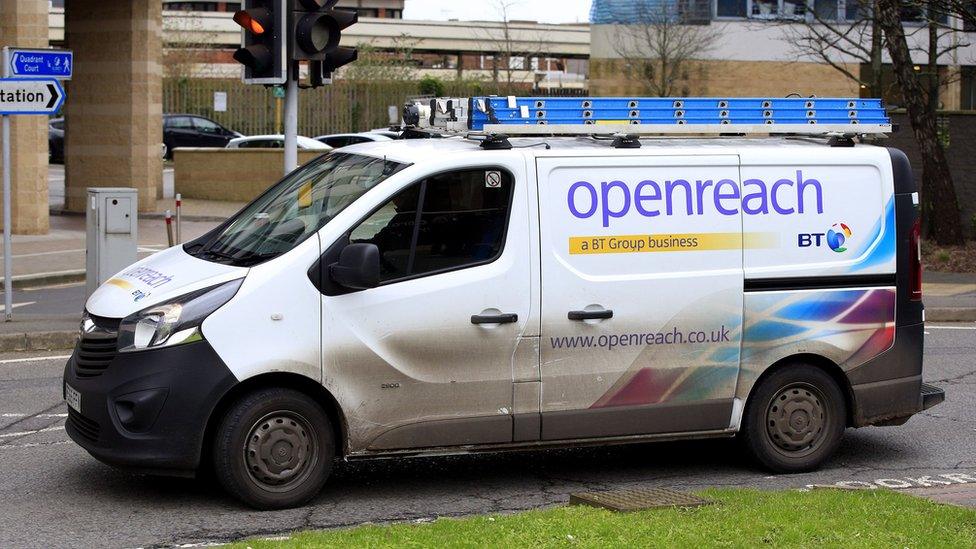
Mr Patterson said the agreement would end a "period of uncertainty" for staff. "We have listened to criticism of our business and as a result are willing to make fundamental changes to the way Openreach will work in the future," he said.
He also admitted that Openreach's service has "not been where it needed to be" and said the separation would improve the situation.
The BT logo will also be removed from Openreach's branding.
Shares in BT jumped 4.3% to 344.2p in morning trading in London.
George Salmon at Hargreaves Lansdown said keeping Openreach as part of BT, but with its own board and brand, "should put to bed any lingering concerns investors may have had over this potentially disruptive issue".
- Published10 March 2017
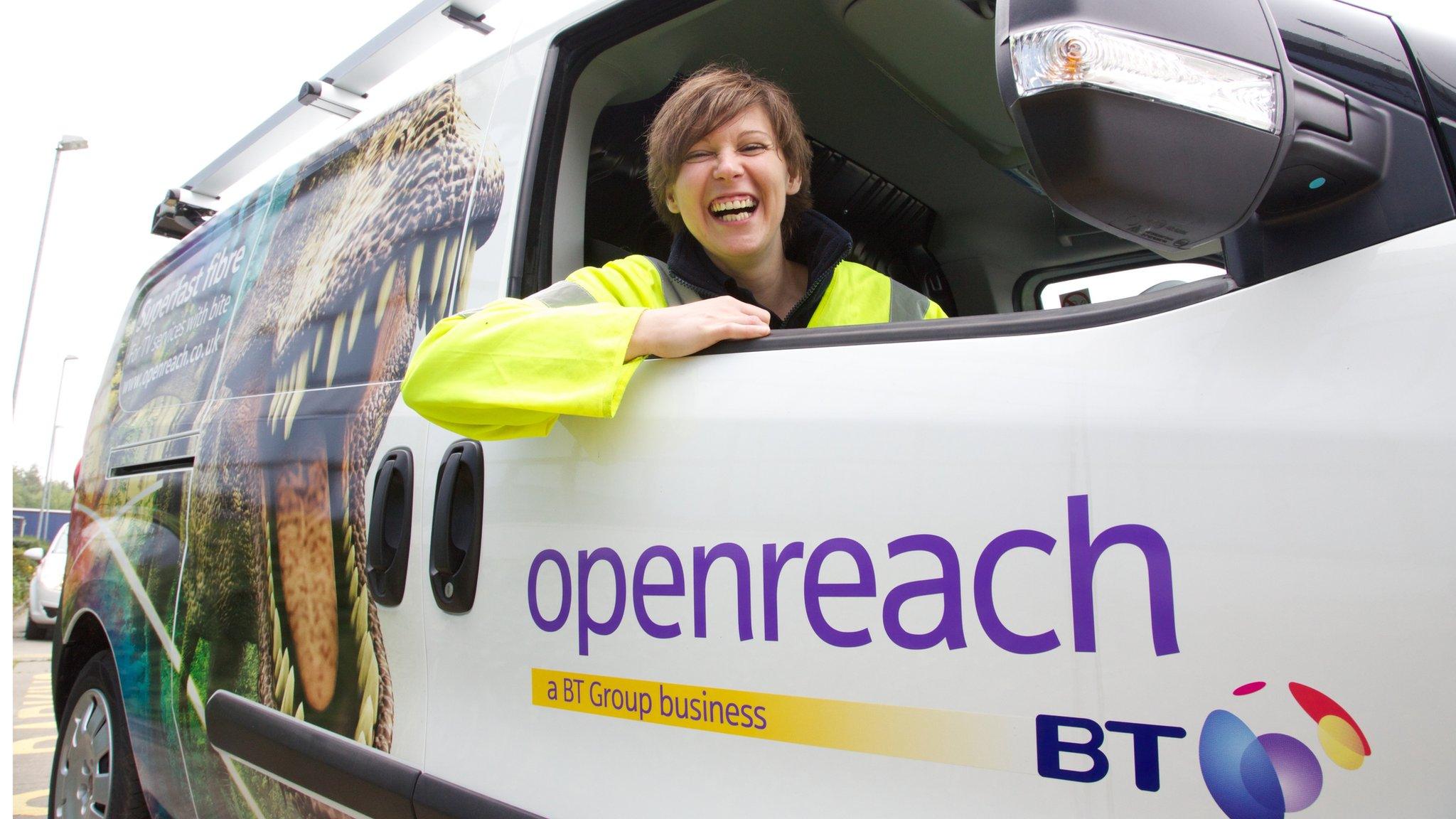
- Attribution
- Published6 March 2017

- Published27 January 2017
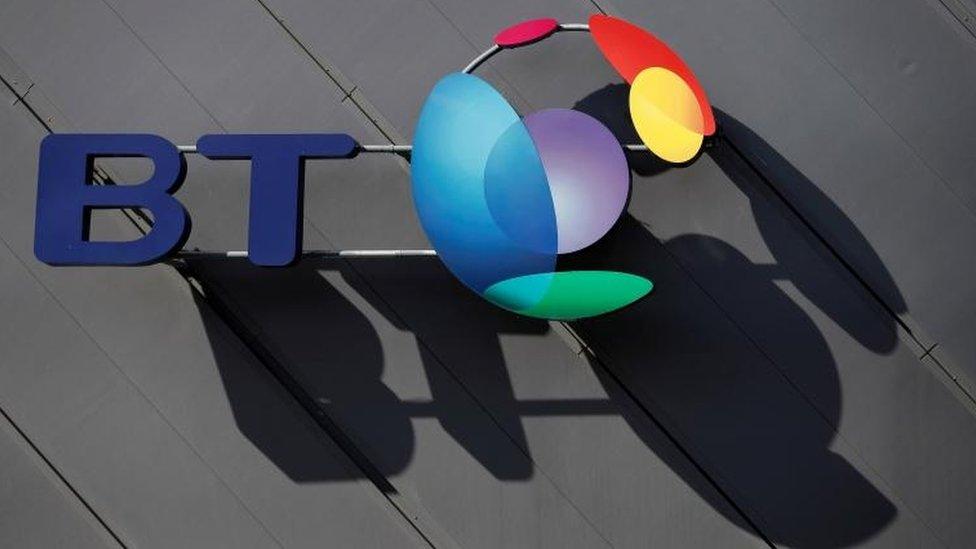
- Published29 November 2016
